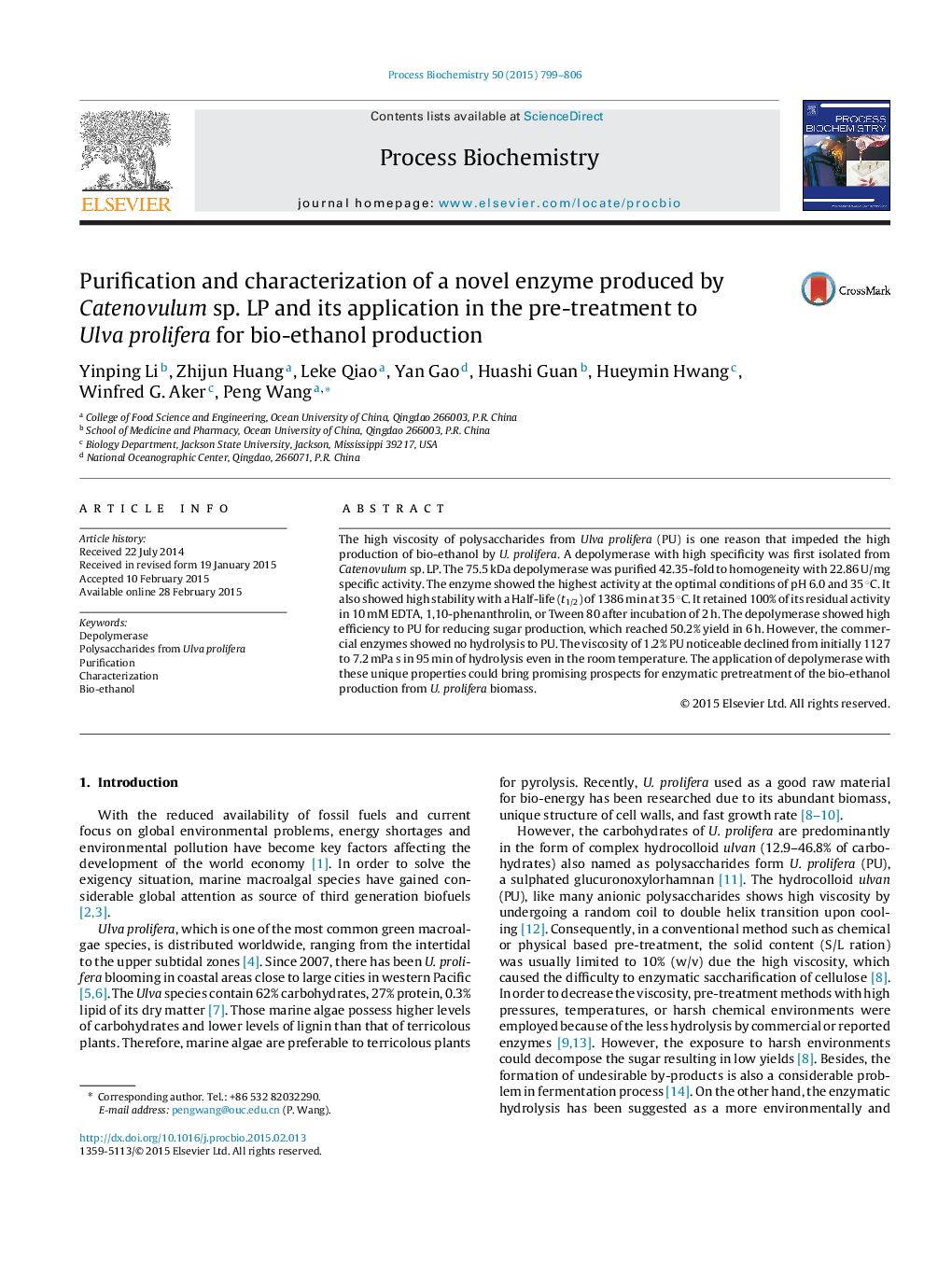| Article ID | Journal | Published Year | Pages | File Type |
|---|---|---|---|---|
| 34338 | Process Biochemistry | 2015 | 8 Pages |
•A novel depolymerase to degrade PU was reported.•The depolymerase degraded PU efficiently, which also declined the viscosity of PU noticeably.•The enzymatic hydrolysis of PU was first reported.
The high viscosity of polysaccharides from Ulva prolifera (PU) is one reason that impeded the high production of bio-ethanol by U. prolifera. A depolymerase with high specificity was first isolated from Catenovulum sp. LP. The 75.5 kDa depolymerase was purified 42.35-fold to homogeneity with 22.86 U/mg specific activity. The enzyme showed the highest activity at the optimal conditions of pH 6.0 and 35 °C. It also showed high stability with a Half-life (t1/2) of 1386 min at 35 °C. It retained 100% of its residual activity in 10 mM EDTA, 1,10-phenanthrolin, or Tween 80 after incubation of 2 h. The depolymerase showed high efficiency to PU for reducing sugar production, which reached 50.2% yield in 6 h. However, the commercial enzymes showed no hydrolysis to PU. The viscosity of 1.2% PU noticeable declined from initially 1127 to 7.2 mPa s in 95 min of hydrolysis even in the room temperature. The application of depolymerase with these unique properties could bring promising prospects for enzymatic pretreatment of the bio-ethanol production from U. prolifera biomass.
